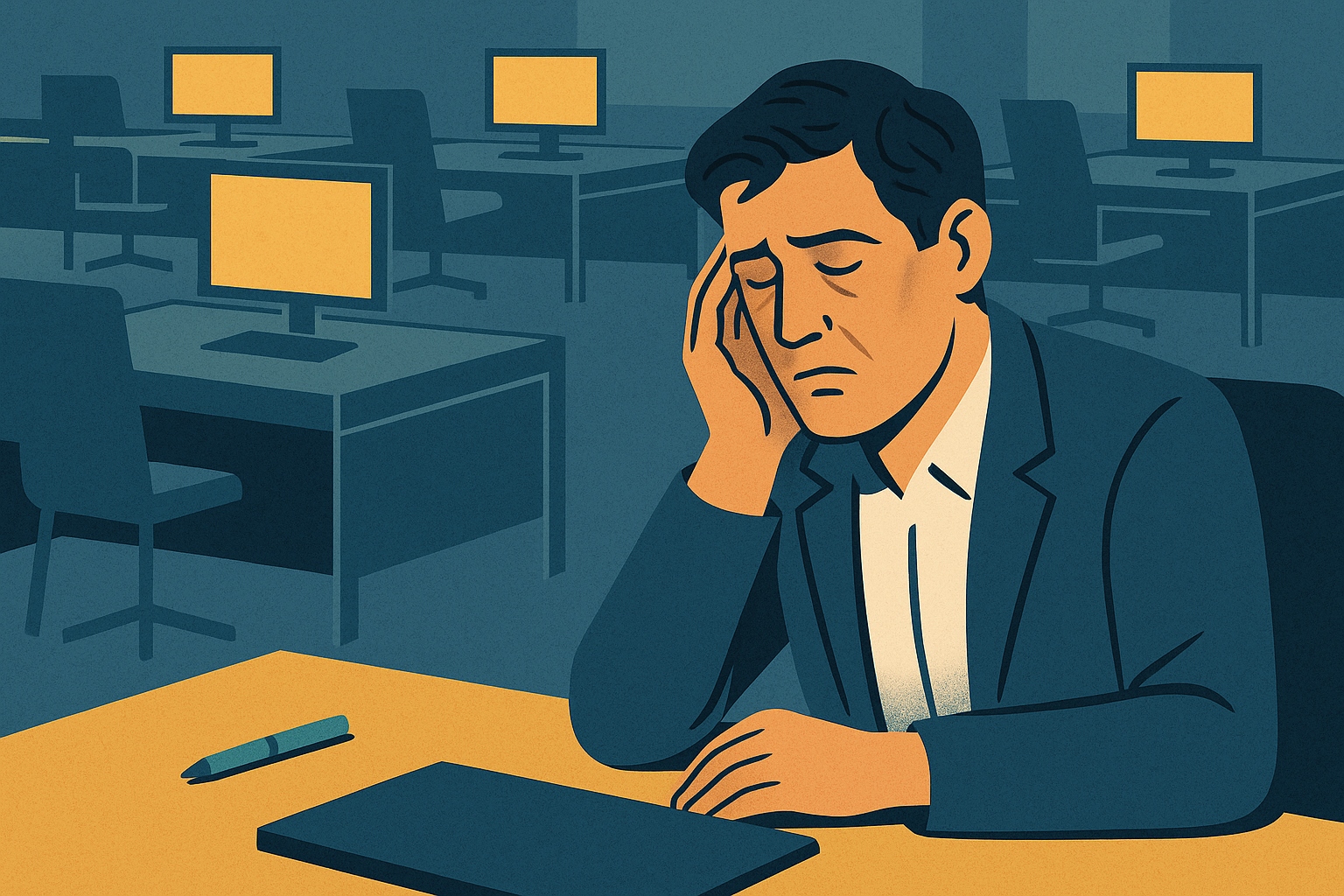Presenteeism is costing UK businesses far more than absenteeism. A growing body of research shows that while sickness absence is tightly monitored and managed, the hidden cost of employees working while unwell is vastly greater. Experts warn that companies may be measuring the wrong thing.
The scale of the problem is striking. Deloitte has previously estimated that presenteeism costs employers around £24bn annually, but new analysis suggests the figure is far higher. Research by the Institute for Public Policy Research (IPPR) places the total annual cost of employee ill-health at £103bn, with the overwhelming driver being lost productivity from people working while unwell. On average, UK employees now lose the equivalent of 44 days of productivity each year to presenteeism — compared with just 6.7 days lost to sickness absence.
Brenig Moore, public health expert at workplace training provider Astutis, warns that too many employees still feel pressured to work when they should be resting. “Too many employees still feel pressured to push through illnesses, whether that’s a generic winter cold or something more serious. The problem is that presenteeism isn’t just harming the individual; employers are also paying far more than if the employee were to take a few days off to rest and recover,” he said.
Part of the problem lies in measurement. Absenteeism is a mature function for HR departments, tracked through sickness records, “trigger point” systems, and dashboards. By contrast, presenteeism is largely captured through surveys, such as the World Health Organization’s Health and Work Performance Questionnaire or the Stanford Presenteeism Scale, which rely on employees self-reporting lost productivity. This leaves the true cost largely hidden from company reporting cycles.
Moore emphasises that policy plays a role in tackling this blind spot. “You need to ensure that any absence policies are supportive and flexible, and make it clear that short-term sickness is preferable to long-term reduced performance. It’s worth redistributing the policy to staff members so that they know where to find it, what it says and what your company’s stance is on sickness,” he advised.
Hybrid and remote working have added a new dimension. The rise of “digital presenteeism” has left many employees feeling they must remain visible online, even when unwell. A recent survey found that 84% of HR leaders reported higher rates of employees working sick from home. Employers’ growing use of monitoring tools that track log-ins and emails reinforces this culture of constant availability. As Moore notes, “It’s also important to remind people who work from home that just because they’re at home, not infecting the rest of the office, doesn’t mean that they aren’t entitled to a few days’ rest to ensure that they come back fighting fit.”
Leadership behaviour is another powerful factor. Research shows that when managers work while sick, their teams are far more likely to follow suit. Moore argues that cultural change starts at the top: “Managers and senior staff should model healthy workplace behaviour by taking time off when they’re unwell. This will give employees, particularly those with less seniority than them, confidence that they will be able to do the same when they’re unwell without the fear of judgment.”
The stakes are high. Poor mental health alone costs UK employers an estimated £42–45bn annually through a combination of presenteeism, absenteeism, and staff turnover. Yet evidence suggests the business case for investment is strong. Deloitte’s research with the charity Mind found that for every £1 spent on employee mental health, employers saw a £5 return in reduced costs and improved productivity. Companies such as Zurich, Aviva, J Sainsbury, and Softcat have all been recognised for wellbeing strategies that integrate flexible work, mental health training, and proactive employee support.
Moore highlights that small cultural shifts also make a difference, from encouraging breaks and digital switch-off to providing access to employee assistance programmes. “Changing the culture around sick leave is still one of the simplest tasks an employer can do, yet one of the most effective,” he said.
The paradox remains clear. Absenteeism may be easier to track, but presenteeism represents a far greater drag on productivity. As UK organisations grapple with rising costs and tighter margins, the challenge is not simply to count absence, but to confront the hidden losses of unhealthy presence.



